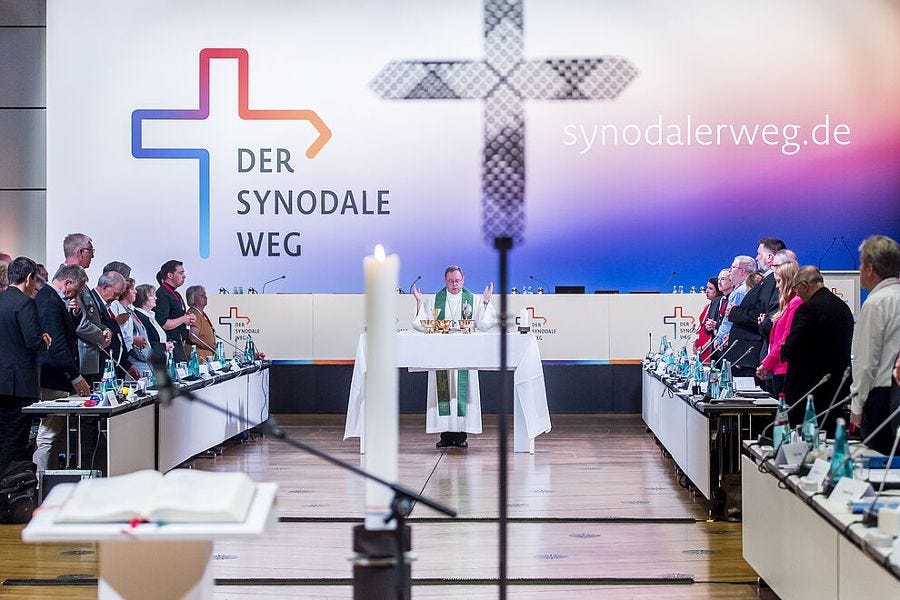German ‘synodal way’ adopts resolution on women in ministries
The text challenges ‘the exclusion of women from the sacramental ministry’

Participants in Germany’s “synodal way” approved a text on Friday on the role of women in the Catholic Church that challenges “the exclusion of women from the sacramental ministry.”
Members voted toward the end of the second day of a plenary meeting in Frankfurt on a 31-page document entitled “Women in ministries and offices in the Church,” which was fac…
